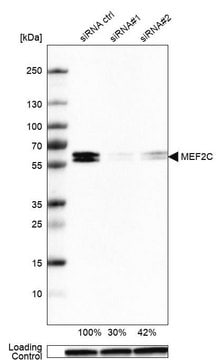GF21658642
Samarium
foil, not light tested, 25x25mm, thickness 0.025mm, as rolled, 99%
Synonym(s):
Samarium, SM000200
About This Item
Recommended Products
Assay
99%
form
foil
manufacturer/tradename
Goodfellow 216-586-42
resistivity
91.4 μΩ-cm, 0°C
size × thickness
25 x 25 mm × 0.025 mm
bp
1794 °C (lit.)
mp
1074 °C (lit.)
density
7.47 g/mL at 25 °C (lit.)
SMILES string
[Sm]
InChI
1S/Sm
InChI key
KZUNJOHGWZRPMI-UHFFFAOYSA-N
Looking for similar products? Visit Product Comparison Guide
General description
Legal Information
Signal Word
Warning
Hazard Statements
Precautionary Statements
Hazard Classifications
Water-react 3
Storage Class Code
4.3 - Hazardous materials which set free flammable gases upon contact with water
WGK
WGK 3
Flash Point(F)
Not applicable
Flash Point(C)
Not applicable
Certificates of Analysis (COA)
Search for Certificates of Analysis (COA) by entering the products Lot/Batch Number. Lot and Batch Numbers can be found on a product’s label following the words ‘Lot’ or ‘Batch’.
Already Own This Product?
Find documentation for the products that you have recently purchased in the Document Library.
Our team of scientists has experience in all areas of research including Life Science, Material Science, Chemical Synthesis, Chromatography, Analytical and many others.
Contact Technical Service







